
Journal of Imaging
Scope & Guideline
Empowering Researchers with Open-Access Imaging Insights
Introduction
Aims and Scopes
- Medical Imaging:
The journal extensively covers advancements in medical imaging technologies such as MRI, CT, ultrasound, and radiology, focusing on their applications in diagnostics, treatment planning, and patient care. - Computer Vision and AI Integration:
A significant emphasis is placed on the integration of artificial intelligence and machine learning techniques within imaging processes, enhancing image analysis, interpretation, and automation. - Remote Sensing and Environmental Monitoring:
The journal publishes research related to remote sensing applications, including monitoring vegetation, urban environments, and disaster management through satellite and aerial imaging. - Image Processing Techniques:
Research focusing on novel image processing algorithms and methodologies, including segmentation, feature extraction, and image enhancement techniques. - Cultural Heritage and Art Imaging:
The journal also explores imaging technologies applied to cultural heritage, focusing on the preservation and analysis of artworks and historical artifacts. - Robotics and Autonomous Systems:
Research related to the use of imaging in robotics, particularly in navigation, object detection, and automated systems for various applications.
Trending and Emerging
- Deep Learning Applications:
There is a significant increase in research utilizing deep learning techniques for image classification, segmentation, and enhancement, reflecting the ongoing advancements in AI. - Explainable AI in Imaging:
Emerging interest in making AI models interpretable and explainable, particularly in medical imaging, is gaining traction, as researchers seek to understand and trust AI-driven decisions. - Hybrid Imaging Modalities:
Research focusing on combining different imaging modalities (e.g., PET/MRI, CT/MRI) to enhance diagnostic accuracy and provide comprehensive insights into medical conditions is increasingly prevalent. - Real-Time Imaging Technologies:
There is a growing trend towards real-time imaging applications, particularly in surgical settings and emergency medicine, highlighting the need for immediate data interpretation and decision-making. - Augmented and Virtual Reality Applications:
The application of AR and VR in imaging for training, education, and surgical planning is emerging as a significant area of interest, showing potential for innovative solutions in medical and educational contexts.
Declining or Waning
- Traditional Imaging Techniques:
There is a declining emphasis on traditional imaging methods that do not incorporate modern computational techniques, as newer methodologies gain prominence. - Basic Imaging Theory:
Research focused solely on theoretical aspects of imaging without practical applications or technological advancements has seen reduced interest, as the field shifts towards applied and interdisciplinary studies. - Manual Image Analysis:
There is a noticeable decrease in studies centered around manual image analysis methods, with a growing trend toward automated and AI-driven approaches.
Similar Journals
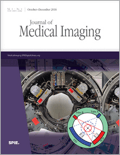
Journal of Medical Imaging
Advancing the Future of Diagnostic ImagingThe Journal of Medical Imaging, published by SPIE-SOC PHOTO-OPTICAL INSTRUMENTATION ENGINEERS, is an esteemed publication in the field of medical imaging, playing a pivotal role in advancing the discipline since its inception in 2014. With an ISSN of 2329-4302 and an E-ISSN of 2329-4310, this journal has garnered significant recognition, evidenced by its Q2 ranking in 2023 within the critical category of Radiology, Nuclear Medicine, and Imaging. The journal is dedicated to presenting cutting-edge research and innovations that enhance diagnostic imaging techniques and methodologies, appealing to a diverse audience of researchers, professionals, and students alike. Offering valuable insights into the interplay of optics and imaging technologies, it serves as a crucial resource for fostering knowledge and collaboration in the medical community. Notably, it holds a competitive rank of #136 out of 333 in its Scopus category, placing it in the 59th percentile—a testament to its influence and relevance in ongoing medical research. Therefore, the Journal of Medical Imaging stands out as an essential platform for disseminating transformative findings and innovations in healthcare imaging.
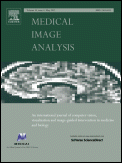
MEDICAL IMAGE ANALYSIS
Unveiling the Power of Imaging in Health Informatics.MEDICAL IMAGE ANALYSIS, published by ELSEVIER, stands as a premier journal in the fields of computer science and medical imaging, particularly focusing on the intersection of Computer Graphics, Computer Vision, and Health Informatics. With an impressive impact factor and a consistent classification in the Q1 quartile across multiple domains including Radiology and Radiological Technology, this journal attracts high-quality research and innovative methodologies that significantly contribute to advancing medical practices and technology. Based in the Netherlands, and covering a gamut of topics from 1996 to 2025, it serves as a vital platform for disseminating cutting-edge studies aiming to enhance diagnostic accuracy and treatment planning through sophisticated imaging techniques. While it does not offer Open Access options, the journal’s rigorous peer-review process and high Scopus rankings—positioning it within the top percentiles across several categories—further solidify its reputation as an essential resource for researchers, professionals, and students committed to the evolution of medical imaging.

IMAGING SCIENCE JOURNAL
Navigating the Evolving Landscape of Imaging TechnologiesImaging Science Journal, published by Taylor & Francis Ltd, serves as a vital resource for researchers and professionals in the fields of computer vision, pattern recognition, and media technology. With an ISSN of 1368-2199 and an E-ISSN of 1743-131X, this journal has been fostering scholarly dialogue since its inception in 1997, with a converged content offering extending through 2024. Its categorization in Quartile 4 in Computer Vision and Pattern Recognition and Quartile 3 in Media Technology highlights its relevance and contributions to emerging trends in these domains. Although it ranks 36th in the Engineering - Media Technology category and 96th in Computer Science - Computer Vision and Pattern Recognition, its innovative research and insights continue to attract the attention of scholars dedicated to advancing knowledge at the intersection of imaging technologies. Offering versatile access options, this journal is essential for students, researchers, and professionals aiming to stay informed and engaged in the rapidly evolving landscape of imaging science.
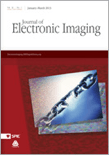
JOURNAL OF ELECTRONIC IMAGING
Advancing the Future of Electronic Imaging.JOURNAL OF ELECTRONIC IMAGING, published by SPIE - Society of Photo-Optical Instrumentation Engineers, stands at the intersection of cutting-edge research in various fields including Atomic and Molecular Physics, Optics, and Computer Science Applications. With an ISSN of 1017-9909 and an E-ISSN of 1560-229X, this esteemed journal has been a significant contributor to the scientific community since its inception in 1993, continuing its mission to provide a platform for innovative research through 2024. Operating from its headquarters in Bellingham, WA, United States, the journal is currently categorized in the third quartile for major domains such as Electrical and Electronic Engineering, indicating a robust engagement with contemporary topics and advancements. Although it is not an Open Access journal, it remains accessible to a wide audience of researchers, professionals, and students through institutional subscriptions. With its impactful contributions and a comprehensive view of electronic imaging, this journal not only serves as a vital resource but also drives discussions that shape the future of this rapidly evolving field.
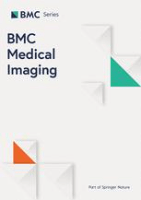
BMC MEDICAL IMAGING
Empowering Researchers and Clinicians in Medical Imaging.BMC Medical Imaging is a premier open-access journal dedicated to advancing the field of radiology, nuclear medicine, and imaging technologies. Published by BMC in the United Kingdom, this journal serves as a vital resource for researchers, clinicians, and students, fostering a collaborative environment for sharing innovative findings and methodologies in medical imaging. With a commendable impact factor and an impressive Scopus ranking within the top 35% of its category, BMC Medical Imaging provides a platform for high-quality research to be disseminated widely and freely since its inception in 2001. The journal aims to cover a diverse array of topics, from advanced imaging techniques to their clinical applications, enhancing the understanding and effectiveness of diagnostic practices. By contributing to the body of knowledge and facilitating open access to research, BMC Medical Imaging plays a pivotal role in shaping the future of medical imaging and improving patient care.

JOURNAL OF MATHEMATICAL IMAGING AND VISION
Exploring the Intersection of Mathematics and Visual PerceptionJOURNAL OF MATHEMATICAL IMAGING AND VISION, published by Springer, stands as a significant platform for advancing the fields of applied mathematics, computer vision, and pattern recognition, among others. With an ISSN of 0924-9907 and an E-ISSN of 1573-7683, this esteemed journal is based in the Netherlands and has been contributing to the scholarly discourse since its inception in 1992, with a converged focus through 2024. It has achieved reputable standings within several quartiles, including Q2 rankings across applied mathematics, geometry and topology, and condensed matter physics, reflecting its impact and relevance. Notably, the journal ranks within the top 5% in Geometry and Topology and maintains robust standings in Statistics and Probability. The JOURNAL OF MATHEMATICAL IMAGING AND VISION is dedicated to publishing high-quality research that bridges theoretical perspectives with practical applications, making it an essential resource for researchers, professionals, and students who are exploring the cutting-edge of mathematical imaging and its interdisciplinary applications.

Signal Image and Video Processing
Transforming Data into Visual MasterpiecesSignal Image and Video Processing, published by Springer London Ltd, is a cutting-edge academic journal dedicated to the fields of electrical and electronic engineering and signal processing. With an ISSN of 1863-1703 and an E-ISSN of 1863-1711, this journal plays a pivotal role in disseminating innovative research findings from 2007 to 2024, boasting a commendable Q2 ranking in its respective categories. Located in the United Kingdom, the journal attracts a diverse readership of researchers, professionals, and students eager to explore advancements in signal processing technologies and their applications in imaging and video analysis. Although it does not offer open access, its rigorous peer-review process ensures the publication of high-quality, impactful research, evident by its respectable rankings within Scopus in both electrical engineering and computer science domains. The journal serves as vital resource for those aiming to stay at the forefront of technological developments and research in image and video processing.
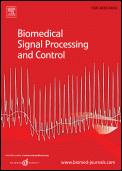
Biomedical Signal Processing and Control
Empowering research at the intersection of engineering and health.Biomedical Signal Processing and Control is a premier academic journal published by ELSEVIER SCI LTD that stands at the forefront of the rapidly evolving fields of biomedical engineering, health informatics, and signal processing. With an impressive impact factor reflecting its scholarly influence and high standards of research, this journal has been recognized in the Q1 quartile category across multiple disciplines as of 2023. Specifically, it holds esteemed positions within Biomedical Engineering, Health Informatics, and Signal Processing, where it ranks in the top tier of its field on Scopus: #19/131, #21/138, and #47/303 respectively. Published continually from 2006 to 2024, the journal serves as a critical platform for researchers, healthcare professionals, and students, fostering innovation in signal processing techniques and their applications in biomedical systems. Access to cutting-edge research and methodologies makes it an indispensable resource for advancing knowledge and practice within these interdisciplinary domains.
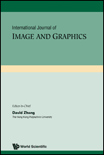
International Journal of Image and Graphics
Transforming Ideas into Stunning Visual RealitiesInternational Journal of Image and Graphics, published by World Scientific Publishing Co. Pte Ltd, serves as an essential platform for scholars and practitioners in the realms of Computer Graphics, Computer-Aided Design, and Computer Vision and Pattern Recognition. Established in 2001 and based in Singapore, this journal has become increasingly influential, with a reputation reflected in its Q3 and Q4 rankings across key categories in Scopus, highlighting its growing impact in the academic community. Open access options remain limited; however, the journal's commitment to disseminating high-quality research allows for a rich exchange of ideas among professionals and students alike. As the 2023 metrics indicate, contributions to the journal not only enhance individual academic portfolios but also promote advancements in image processing, fostering innovation and growth within the discipline until at least 2024. It is thus a vital resource for anyone looking to deepen their knowledge and understanding of contemporary trends and technologies in image processing and related fields.
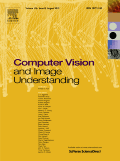
COMPUTER VISION AND IMAGE UNDERSTANDING
Catalyzing Breakthroughs in Visual IntelligenceCOMPUTER VISION AND IMAGE UNDERSTANDING is a leading academic journal published by Academic Press Inc, Elsevier Science, dedicated to the advancement of the fields of computer vision, image understanding, and pattern recognition. Since its inception in 1993, this esteemed publication has garnered a reputation for excellence, achieving a remarkable Q1 ranking in the categories of Computer Vision and Pattern Recognition, Signal Processing, and Software as of 2023. With its robust impact factor and high visibility in the scientific community—ranking #22 out of 106 in Computer Vision and Pattern Recognition and #27 out of 131 in Signal Processing—this journal serves as a vital resource for researchers, professionals, and students looking to explore and contribute to state-of-the-art developments. Although it does not operate under an Open Access model, its rigorous peer-reviewed content ensures quality and relevance in a rapidly evolving technological landscape. The journal’s commitment to fostering innovation makes it an essential tool for anyone engaged in the study and application of computer vision technologies.